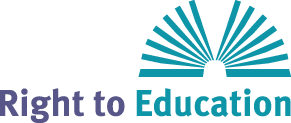On July 12, the United Nations Human Rights Council reaffirmed its recognition of the Abidjan Principles on the right to education, urging States to act against commercialisation of education, and requested the UN to work with the Global Partnership for Education to implement it.
This statement, signed by 25 civil society organisations, highlights the connection between GPE, which is the main multilateral funding organisation for education, and human rights. It stresses that collaboration between GPE, as a harmonised funding body, and UNESCO and OHCHR, as human rights and policy organisations, could be essential to ensure that human rights are translated from commitments to effective education programming. In particular, UNESCO recently designed a series of tools to support States in addressing the right to education in educational planning and management, which could help bridge this gap. The signing organisations will be engaging with these institutions and are committed to working with them to support the practical use of the right to education in education sector planning and implementation, in accordance with the resolution.
This written statement was submitted by GI-ESCR and RTE during the 53rd session of the Human Rights Council in Geneva. It was submitted in relation to the presentation of the report of the Special Rapporteur on the right to education: Securing the right to education: advances and critical challenges (A/HRC/53/27).
Dans un monde en proie à la fragmentation sociale, aux inégalités dommageables et à la détérioration de l'environnement, nous avons besoin plus que jamais d'une éducation publique de qualité, transformatrice et inclusive. Alors que nos systèmes politiques s'efforcent de résister à l'autocratie tout en promouvant la démocratie, l'éducation publique gratuite peut contribuer à former des populations bien informées, capables de relever ces défis mondiaux.
Le public soutient l'éducation publique, et l'éducation publique fonctionne.
Veuillez signer la déclaration et nous rejoindre dans le processus de plaidoyer pour que les États réalisent le plein potentiel de l'éducation publique. Notre avenir en dépend !
